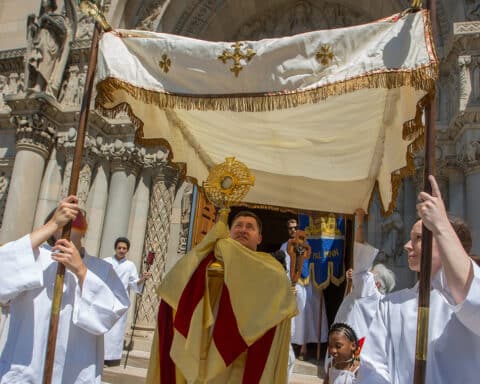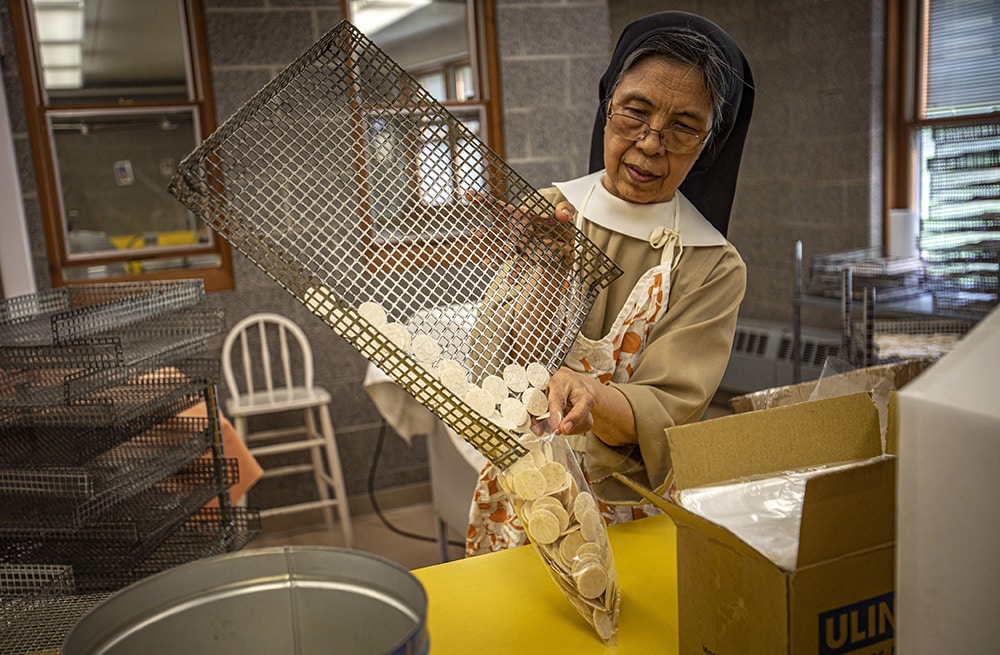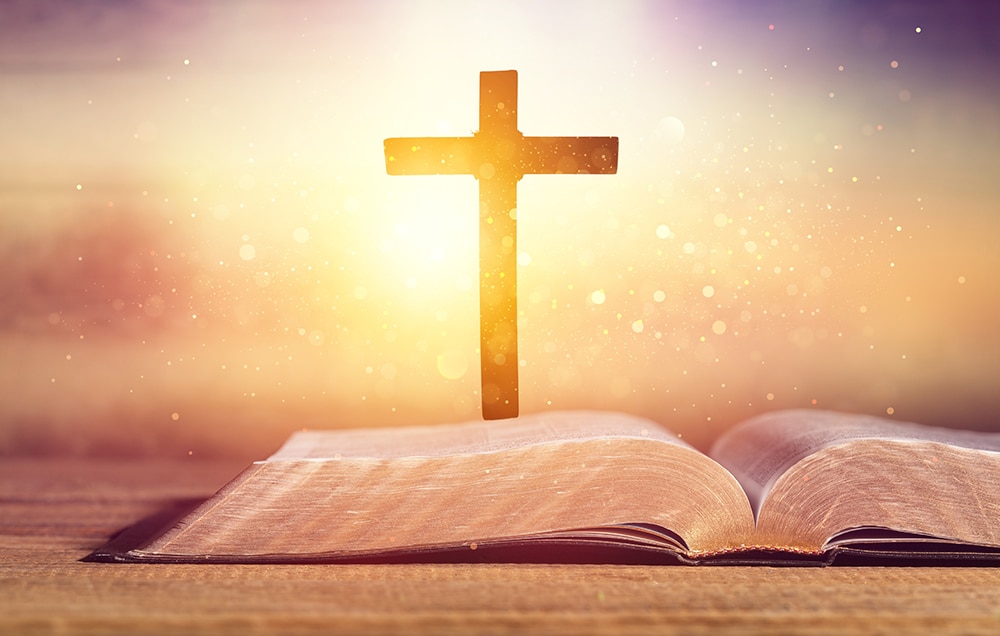
— Jordan Piercy, Washington, D.C.
Answer: It is not accurate to say that the Church permits gluten-free hosts. It is more proper to say that the use of low-gluten hosts is permitted for those who have celiac disease. Celiac disease is a disease in which people can’t eat gluten (a protein found in wheat) because their immune system responds by damaging the small intestine. Low-gluten hosts have trace amounts of gluten but not usually enough to trigger response in those with celiac disease. In rare cases where even trace amounts are harmful, the Church permits that communicants can receive the Precious Blood only. This is permissible because the host contains the full and Real Presence of Christ, as does the Precious Blood.
In cases where low-gluten hosts host will be required or the person can only receive the Precious Blood, arrangements should be made before Mass so that the priest is not unprepared and knows to consecrate the low-gluten host or set a personal chalice aside for the communicants who have need of these special adaptations.
As for the wine that is used, alcohol-free wine is not permitted. For priests who struggle with alcohol addiction, it is permitted to use something usually called “mustum” which is wine but has only trace elements of alcohol. Such an option is usually available only to the priest since it is not required that the lay-faithful receive the Precious Blood. Only the priest is required to receive holy Communion under both species.
A level of certainty
Question: A co-worker of mine who is very secular scoffed recently about the possibility of knowing anything with certainty. He is very subjective and dubious of anything that is objective. What can we, as believers, say about certainty and objectivity?
— Name, location withheld
Answer: What is interesting about his claim is that he breaks his own rule in the very act of insisting on it. He seems quite certain that we cannot be certain or speak in objective terms. Is he not using the very category he denies?
Further, he speaks too categorically. Certitude is not necessarily an all-or-nothing proposition. There are varying degrees of certainty admitting varying degrees of doubt, from none to some.
The highest form of certitude is the certitude of faith that does not admit of error. The certitude extends to the truths of our faith as revealed by God who can neither deceive, nor be deceived. The certitude is rooted in God, not in us. Your secular co-worker may not accept this certitude of faith, however, we who believe do.
The next form and level of certainty is metaphysical certitude. It regards truths that are self-evidently necessary — for example, that I who am thinking must therefore exist, or that a triangle has three sides. These are things about which we can have nearly absolute certainty.
Physical certitude rests on the laws of nature. Such truths are generally consistent and discoverable as laws by experience and permit us to confidently predict the future by the past. But physical certitude can occasionally give way to outside factors that alter the outcomes.
Surely the secular co-worker can accept these types of certitude. Without them we could not have the scientific method or any agreement on basic concepts such as the speed of light, the weight of objects, or that a tree is not a bird.
Finally, moral certitude is not about moral rules per se but involves judgments made concerning human character and conduct. Using this kind of certitude, I assess the character and predictable behavior of others and learn to trust them or not. These judgments are necessary for us in entering relationships or conducting business with others. And while we must usually consider such working judgments we make as reliable or “certain” (otherwise they would be useless), this form of certainty admits of exceptions and doubts since people can both disappoint us or surprise us.
Hence, while some certainty is absolute or nearly so, there are degrees of certainty wherein we are more or less certain based on the nature of the data we are assessing. Humbly admitting that we may be more or less certain about a particular matter has its place, but radical doubt does not get us anywhere and tends to lead to social chaos and tyranny.
Msgr. Charles Pope is the pastor of Holy Comforter-St. Cyprian in Washington, D.C., and writes for the Archdiocese of Washington, D.C. at blog.adw.org. Send questions to msgrpope@osv.com.





